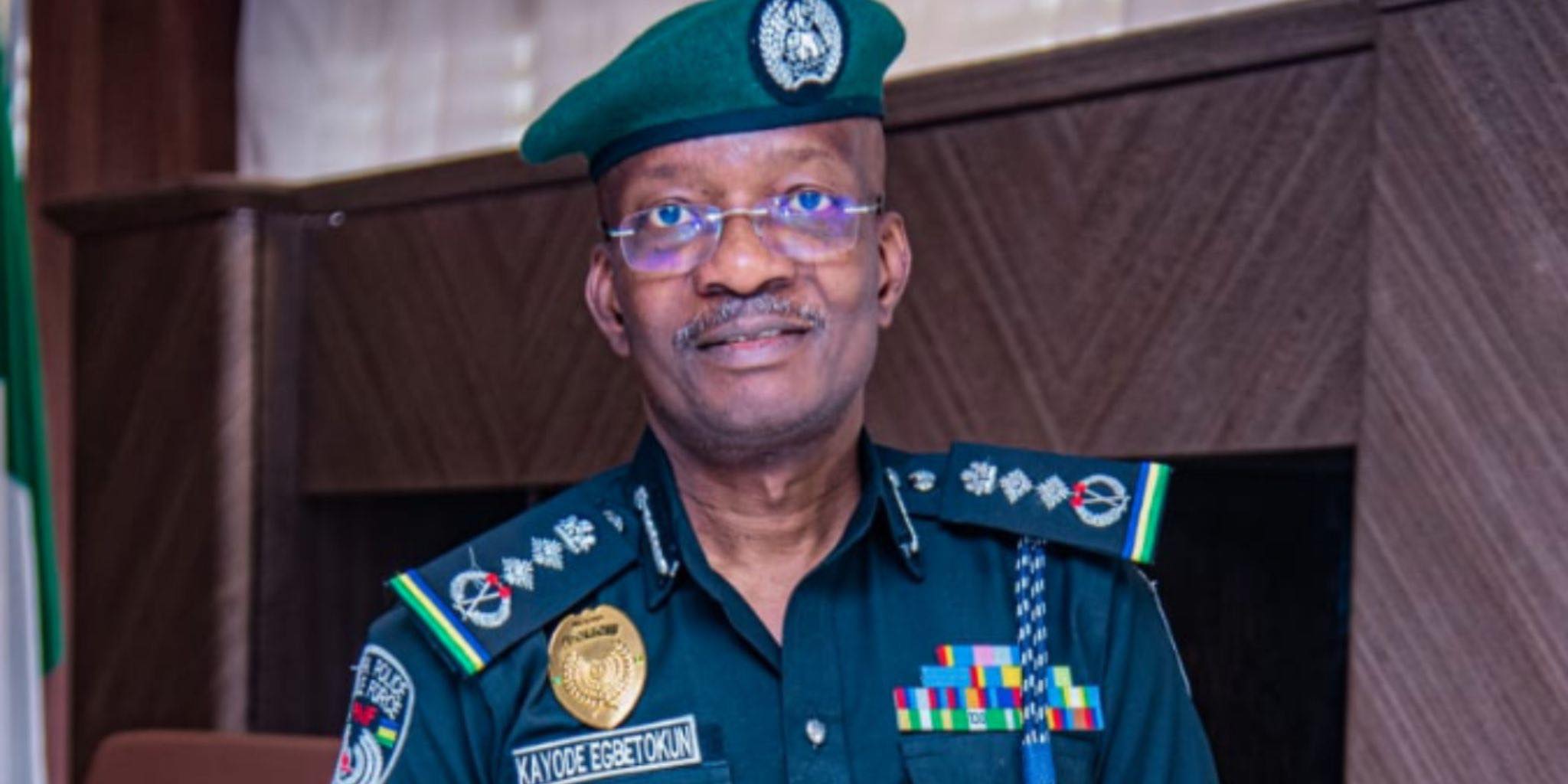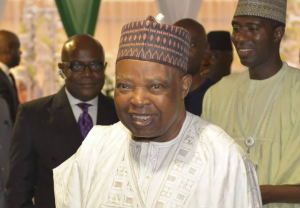Police IG Egbetokun Reportedly Battling Kidney Ailment Amid Mounting Job Pressure
At a time when Nigeria grapples with widespread insecurity, insurgency, and the challenge of restoring public trust in the police, the nation’s top cop, Inspector-General of Police (IGP) Kayode Egbetokun, is reportedly waging a private war—one not against criminals or bandits, but against a silent and potentially debilitating health condition. According to multiple sources, IGP Egbetokun is living with a serious kidney ailment that has quietly shaped his routine, strained his performance, and placed the future of his leadership under growing public and institutional scrutiny.
This report explores the background, implications, and unfolding developments surrounding Egbetokun’s alleged kidney condition and how it intersects with the weight of his duties as the head of the Nigerian Police Force. It also asks broader questions about transparency, accountability, and wellness in public service leadership, particularly in high-stakes roles that demand relentless physical and mental engagement.
The position of Inspector-General of Police is arguably one of the most demanding roles in the Nigerian public sector. As the operational and administrative head of over 370,000 police officers spread across the 36 states and the Federal Capital Territory, the IGP bears the primary responsibility for enforcing law and order, managing civil unrest, and responding to the ever-evolving security crises plaguing the nation. This responsibility becomes heavier in a time like the present, when Nigeria’s security landscape is marked by terrorism in the Northeast, banditry in the Northwest, secessionist unrest in the Southeast, cultism in the South-South, and armed robbery and kidnapping for ransom across the country.
For IGP Kayode Egbetokun, who assumed office in June 2023 amid high hopes and fanfare, the weight of the badge has been further compounded by personal health struggles that many within and outside the force are just beginning to learn about.
According to an exclusive by SaharaReporters, IGP Egbetokun underwent a kidney transplant several years ago while still a Chief Superintendent of Police. Sources familiar with his medical journey allege that he has been living with a single kidney since then, a condition that naturally necessitates close medical monitoring, dietary restrictions, and limited exposure to excessive physical and emotional stress.
The kidney, a vital organ that filters blood and removes waste from the body, can be especially sensitive to overexertion, dehydration, and fatigue. For someone with a single functioning kidney—especially one transplanted—routine medical checkups, a well-regulated schedule, and stress avoidance are not luxuries but necessities.
YOU MAY READ
Nigeria Police Force has resumed the issuance of tinted glass permits across the country.
But in Egbetokun’s case, the demands of his position appear to be at odds with the requirements of his condition.
Multiple insiders within the Nigeria Police Force and close observers at the Louis Edet House—Force Headquarters in Abuja—have noticed a significant change in the Inspector-General’s physical presence. It is alleged that the IGP now restricts his working hours at the office, reportedly arriving around 1:00 p.m. and leaving not long after. These shortened hours, however, do not mean a total abandonment of duty.
Sources say Egbetokun compensates by working late into the night from his private residence in Abuja, which has been retrofitted with medical facilities, including what insiders describe as a makeshift clinic. There, the IGP reportedly holds meetings, signs critical documents, and communicates with top officers, state commissioners, and federal security stakeholders. His residence has effectively become an unofficial control tower.
Yet even this workaround has not escaped attention—or criticism.
Senior officers within the force are reportedly divided on the implications of this arrangement. Some see it as a practical adaptation by a determined man fighting to serve despite his condition. Others believe it may be impeding effective coordination, reducing morale among top command officers, and raising concerns about the transparency and succession readiness of the institution in case of health emergencies.
In March 2025, SaharaReporters reported that the IGP was scheduled to attend a high-level international security conference in the United Kingdom. Although the stated reason for the trip was professional—security diplomacy and intelligence collaboration—insiders claimed that a major component of the travel plan included a visit to UK-based medical specialists for health assessment and treatment.
However, for reasons still unclear, the trip was canceled or postponed indefinitely. Speculation swirled about internal power plays, political optics, and the precariousness of leaving the country at a time of heightened security sensitivity. Whatever the case, the trip that could have provided both professional advantage and personal medical relief was shelved.
The development has raised deeper questions about the extent of institutional support available to the IGP and whether Nigeria has fully accepted the practice of enabling its senior officials to access quality healthcare without the burden of political secrecy or public backlash.
The health of public office holders in Nigeria is often cloaked in secrecy, and when information leaks, it is treated with a mixture of denial, downplay, or outright aggression from loyalists and institutional spokespeople. This culture of concealment has long plagued Nigeria’s political leadership—from President Umaru Musa Yar’Adua’s terminal illness, which was hidden for months, to various silent ailments of governors, ministers, and military chiefs.
The revelation of IGP Egbetokun’s kidney condition—whether confirmed or denied—fits into this tradition of guarded disclosures. The police leadership is yet to issue an official statement confirming or debunking the reports. Instead, the Force Headquarters remains mute, even as whispers within the ranks grow louder.
For a man entrusted with one of Nigeria’s most high-pressure jobs, transparency about his health is not merely a personal matter; it becomes a public concern. Questions abound: Can he effectively discharge his duties? Has his condition affected policy implementation or emergency response capabilities? What contingency plans are in place in the event of a health relapse?
Policing is as much about perception as it is about performance. The sight of a vibrant, engaged, and energetic IGP sends a strong message of order and command. Conversely, the prolonged absence or visible frailty of the police chief—regardless of cause—can signal weakness to both internal and external actors.
Already, some analysts argue that Egbetokun’s health-related absenteeism from key public events has left a perception vacuum, one that is being filled with speculations and assumptions. Others believe that the delay in unveiling major security reform initiatives under his leadership may be due, at least in part, to his physical limitations.
“Leadership, especially in policing, cannot afford shadows,” said a retired Assistant Inspector-General of Police who spoke anonymously. “There must be full presence, especially when morale is low, and criminal activities are high. If the IGP is struggling with his health, the Police Service Commission and Presidency must act responsibly, not politically.”
Amid the swirl of speculation and institutional analysis, it’s easy to forget that Kayode Egbetokun is not merely an officer of state but a man—a husband, a father, a patient. Born in 1964 in Erinja, Ogun State, Egbetokun has risen through the ranks with distinction. His academic record includes a degree in Mathematics, an MBA, and a PhD in Peace and Security Studies. He was famously the Chief Security Officer to Bola Ahmed Tinubu during the latter’s tenure as Governor of Lagos State and is widely regarded as loyal, cerebral, and meticulous.
It is perhaps this deep sense of duty that compels him to keep working despite personal challenges. But how long can willpower substitute for wellness?
Many Nigerians—especially police officers—have expressed admiration for the IGP’s resilience. “He is not a weak man. He is doing his best. But we don’t want him to die in office,” said a mid-ranking officer at the Force Headquarters. “He should either be allowed to rest or given medical leave.”
The reported illness of IGP Kayode Egbetokun comes at a critical juncture in Nigeria’s quest for stability and reform. It raises fundamental questions about the balance between leadership responsibility and personal wellness. While many admire the IGP’s strength and dedication, his health struggles—if verified—should not be hidden or politicized.
Nigeria needs strong leaders, but it also needs a culture of care. The integrity of the office must be preserved, but not at the cost of the life of the man who holds it. The time to act with compassion, clarity, and courage is now.
Until then, the IGP’s journey remains one of dual battles—against crime in the nation, and against a condition within.





